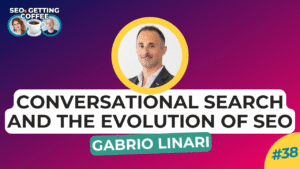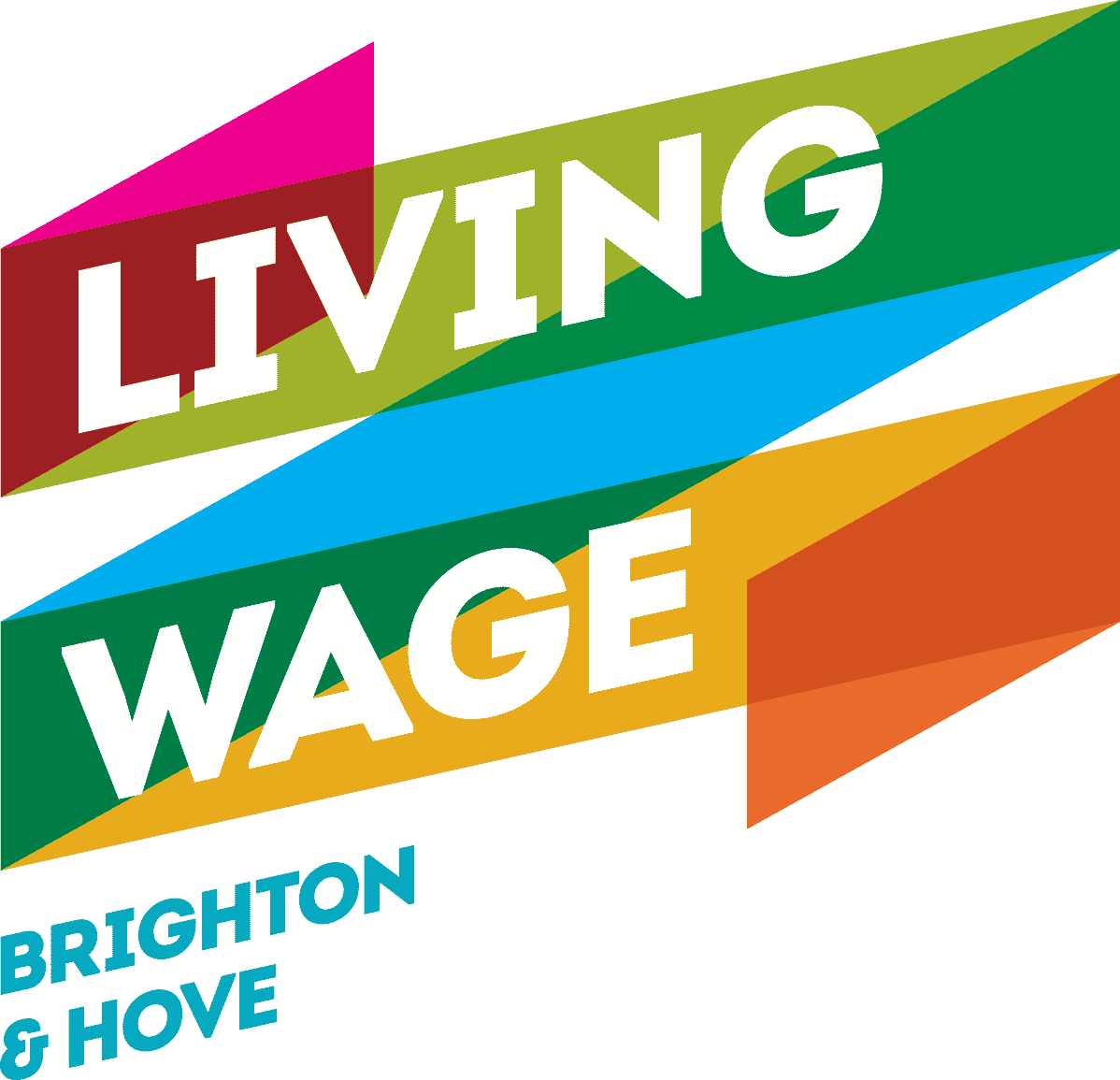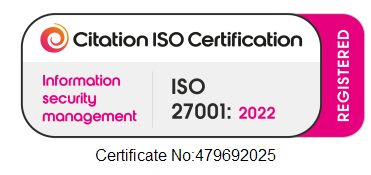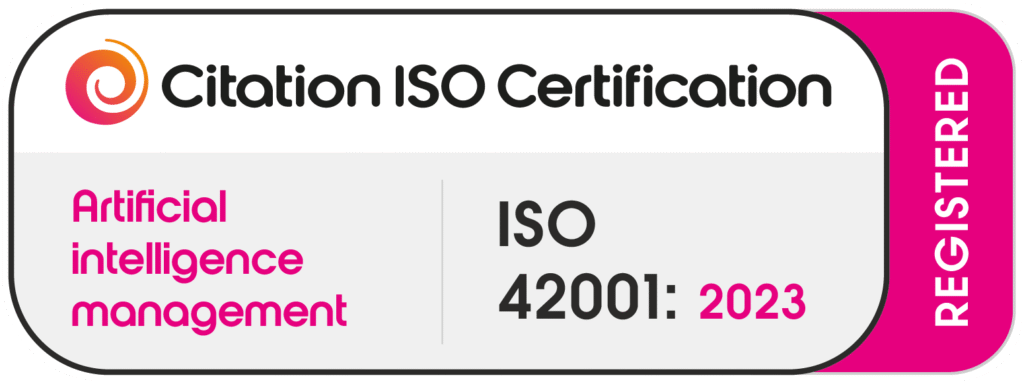It’s time to get back to basics. In this blog, we’ll break down the role of an SEO agency, explore the services they provide, and help you determine whether partnering with one is the right move for your business.
In this post:
What Is an SEO Agency?
To answer the question of: What is an SEO agency, we first need to define what SEO stands for. SEO or Search Engine Optimisation is the process of optimising a website’s content, structure, and other elements to rank higher on search engines like Google, Bing and others.
From a business perspective, the goal is to increase meaningful traffic to the website that will:
a) convert into customers
b) delight your customers
c) build your brand awareness
You’ll notice we use the word meaningful. This is because the process of SEO involves also understanding the website audience, your customers. Traffic for traffic’s sake is never the goal of SEO. The key is to optimise your website so that it speaks to your target audience and grows your business.
This is where a quality SEO agency can help. Ranking on search engines is not easy these days. The purpose of a search engine is to help every user navigate and find what they are looking for online. That’s a huge space with so many companies competing for a place in the top results. And, those top sports are important! According to a study by Backlinko:
- #1 result in Google’s organic search results has an average CTR (click-though-rate) of 27.6%.
- The #1 organic result is 10x more likely to receive a click compared to a page in the #10 spot.
- On average, moving up 1 spot in the search results will increase CTR by 2.8%
Of particular importance are the first three positions, as they get a total of 70% of all clicks! And, the #1 organic search result receives, on average, 19x more clicks than the top paid search result.
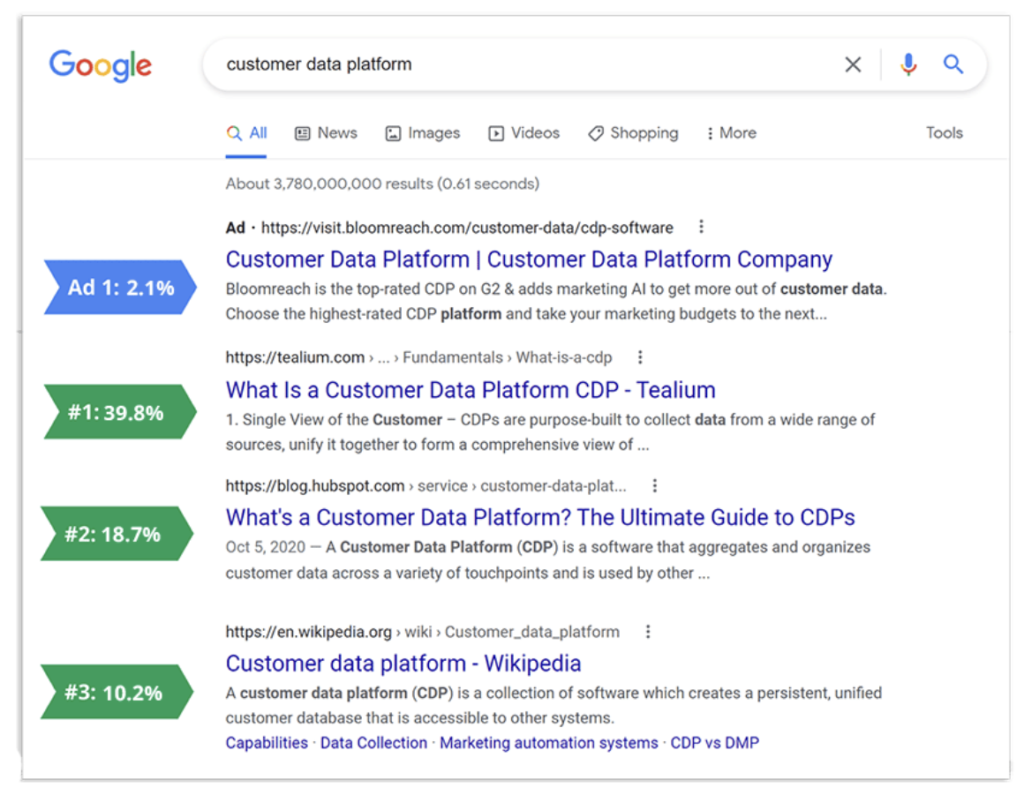
An SEO agency is a specialised company that focuses on improving a website’s visibility in search engine results. They are the ones that can help you optimise your website so that your business appears in the top spots for keywords that are relevant to your target audience. This is done by employing various strategies and techniques to enhance a website’s organic (non-paid) search performance.
Do I Need an SEO Agency?
There is no easy answer to this question. We are of course biased and believe most businesses do need one. Ultimately, whether or not you need an SEO agency depends on your business goals, resources, and in-house expertise. It all comes down to two simple questions:
- Do you want to attract more customers?
- Can you do it yourself?
Search engines are part of everyday life and the old adage “my customers are not online”, does not apply any more. 6,300,000 searches are conducted every minute on Google alone and the search giant boasts 175 billion average monthly visits. SEO has also brought significant ROI to many businesses across multiple industries.
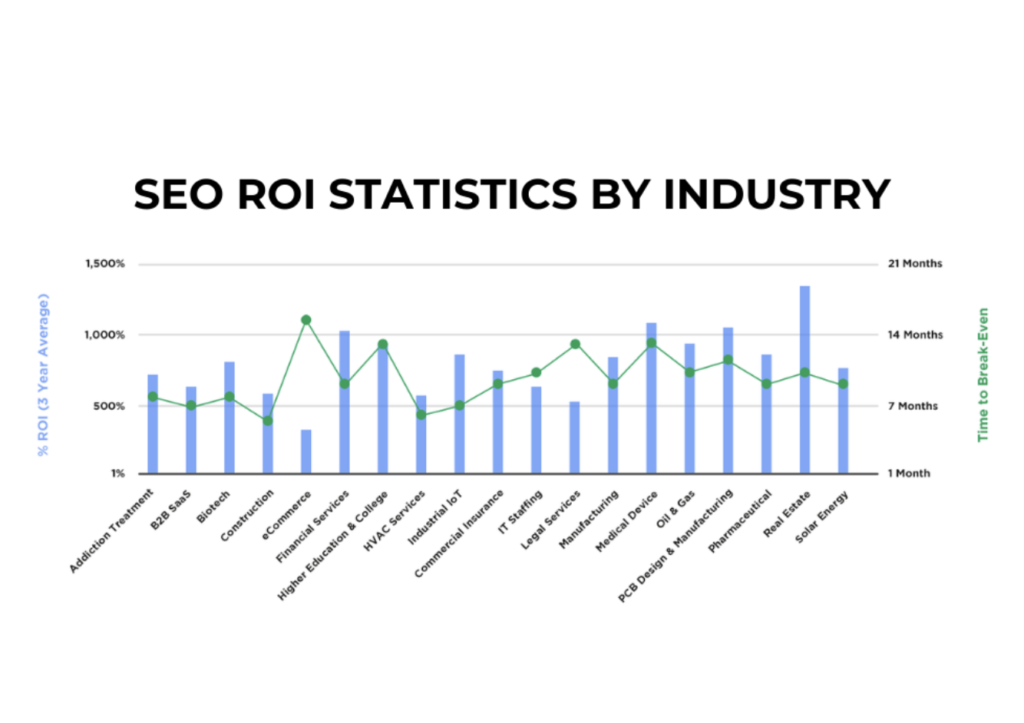
We’ve seen it bring new customers and leads over and over again with our clients as well.
Curious about how we’ve helped other businesses skyrocket their customer base through SEO? Check out our SEO case studies.
But, getting those results is not easy! Particularly in a saturated search market. Google’s algorithm is super complex and uses over 200 factors to determine ranking positions. Even the best SEO agency in the world can’t tell you for certain what they are, but, we know from experience and testing what they might be and which ones are more and less important. Obviously, knowing this helps an agency prioritise SEO work, it helps them determine what they should and shouldn’t put effort into, based on the expected business impact. The question you need to answer is – Do you have the experience and skills in-house already? If not, your option is to either hire external support, such as an agency, or hire an internal team.
There are benefits and drawbacks to each. Ultimately the option you choose will again depend on several factors such as: your budget, the size of your organisation and your needs. As a rule of thumb, once you reach an enterprise level, we believe the role of an agency should adapt. At that size, you are operating with such complexity that the agency should really have an advisory role, not a delivery one, supporting your internal expert team.
We spoke to one of the best enterprise-level SEOs Katherine Ong about this topic on our SEO’s Getting Coffee podcast.
Hiring an SEO agency to take on a more tactical role makes a lot of sense for small and medium businesses looking to grow. An agency will bring expertise and resources that may be difficult to match in-house without an enterprise budget. If you lack the time, knowledge, or team to effectively manage SEO yourself, partnering with an agency is a no-brainer. An agency can help you achieve better results, more quickly and efficiently.
If you decide that hiring an SEO agency is the right step for you, you will need to have a budget to support this. How much SEO costs in the UK on average depends again on many factors. The price of SEO services in the UK ranges between £500 and £8000. The average price is £2,510 and the median price is around £1,375.
What Does an SEO Agency Do?
An SEO agency performs a wide range of tasks that can be divided into:
- Technical SEO – as the name suggests this is the technical side of things. An agency will help you ensure your website meets the technical requirements of search engines. Elements such as your website architecture, how search engines crawl, index and rank your websites and many other bits fall into this.
- Onsite or onpage SEO – again, the clue is in the name. This includes strategies that are around optimising your website content. Such as internal link building strategies, content SEO optimisations and many more.
- Off-page SEO – off-page SEO involves helping your website rank by using signals outside of your own website. The most common example of this is link building – the practice of getting other websites to link to yours which in turn may help you rank higher on organic search.
- Local SEO – local SEO can be seen as a sub-branch that combines all three categories mentioned with some extra strategies specific to its goal: to rank for local keywords. For example, if I’m looking for a plumber in Brighton, I am likely to put something like ‘Brighton Plumbers’ into Google. Local SEO is all about helping companies rank for those types of local queries.
- Keyword Research – part of onsite SEO, but also an art in itself is keyword and topic research – the practice of determining which keywords are relevant to your business and customers, that you want to rank for in search. Identifying the search terms that your target audience uses to find products or services like yours is the basis of every great SEO strategy.
- Content Writing – another element that is technically part of onsite SEO is content writing. A good agency will support you in developing helpful high-quality, relevant content that attracts and engages your target audience. This can be done in two ways: by writing the pieces for you or by creating what is called an SEO brief. An SEO brief is a type of guide that tells you how to make your content user and search-engine-friendly.
- SEO Audits – one of the most common tasks an SEO agency performs are audits. In simple terms, an SEO audit is an evaluation of your current SEO performance and state of play. This can include auditing your technical SEO set-up or any other SEO element depending on your needs. The key is to identify areas for improvement in priority order and based on business impact.
The work carried out by an SEO agency on these tasks can be in nature aimed at:
- Strategy Development – the most important element of what an SEO agency does is in the realm of strategy development. A good agency will create a customised SEO plan that is based on your business goals, target audience, and competition. Our Vixen SEO experts carry out extensive keyword, market and competitor research that is the basis for this strategy. We then discuss and analyse our findings with you and set clear SEO targets and KPIs.
- Implementation – the next stage that follows strategy development is implementation. An agency needs to provide you with what is called an SEO roadmap, a plan for executing against the strategy and the KPIs. Whether the tasks are on-page, off-page, audits or something else, a roadmap is a place where implementation efforts are tracked. How the roadmap is designed varies but it should always include clear deadlines and tasks.
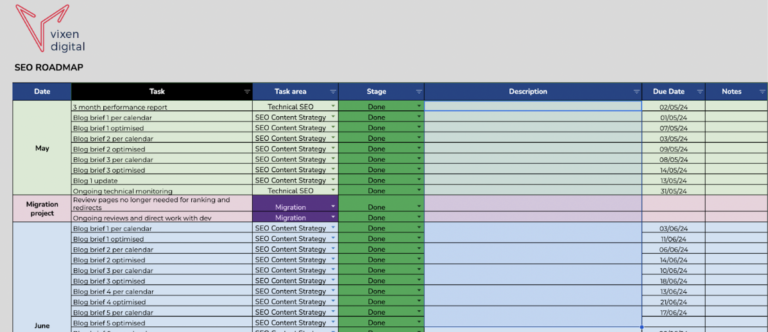
Vixen Digital SEO roadmap example
- Training and consultancy – depending on your needs, an agency can also provide SEO training and consultancy to your internal SEO team. SEO is not just a service, it’s a core competency every business should strive to build internally as well. At Vixen, our training programmes are not just about transferring knowledge; they are about embedding a mindset of continuous improvement and strategic thinking within your organisation. Consultancy goes beyond training—it’s about an agency that works alongside you as a partner. This typically includes ongoing support and advice, troubleshooting challenges and seizing new opportunities as they arise. The aim is to be flexible and support the client in an advisory role on strategy and top-level decision-making. This is something we offer at Vixen that has worked very well, particularly for enterprise-level organisations.
- Performance Monitoring – a big part of what an agency will do is connected to reporting. All the strategies and tactics the agency uses to improve your search visibility and business outcomes need to be accompanied with KPIs (key performance indicators). In essence, KPIs will tell you how effective their work is and what adjustments are needed. Agencies handle reporting differently. At Vixen Digital, we use automated, online visual reports that connect directly with your data. This means that you can access your reports anywhere, at any time. Each month we update you on completed and planned tasks. We also ensure that there is an active dialogue throughout the month so you are truly up to date with your account.
How Many SEO Agencies Are There and How To Pick the Right One?
The number of SEO agencies varies by region and market, but there are thousands worldwide. In the UK alone, there are hundreds of SEO agencies, ranging from small, specialised firms to large, full-service digital marketing agencies.
The exact number is difficult to pinpoint, new agencies are emerging and others are merging or closing down at a high rate. However, the market size of the industry is still substantial, measured at £326.6m in 2024 in the UK alone.
So many options mean that you can find an agency that perfectly fits your needs and budget. Not all of those agencies will be the right fit. This is why choosing an SEO agency is a complex task.
Just like dating, business relationships are about finding the right partner. There is no cut and dry set of criteria for finding the right SEO agency. Every organisation is different and looks for different things in a partner. But there are some basic ways to ensure you’ve done your due diligence and increased your chances for a good match. At the very least you should be choosing your agency based on
- Proposal
- References
- Reporting cadence
- Team
- Price
- Cultural fit
Part of the process should also be knowing the right questions to ask the agency during the tendering process. And, we are not talking about the basic questions such as ‘what is your experience in my category and can you share some case studies’. If you are serious about finding the right SEO agency you should also ask more telling questions. Here’s a few to get you started:
- Can you explain your SEO process in detail, from strategy development to implementation?
- In your opinion, what are the three main SEO areas we should focus on, and why?
- How do you measure SEO success, and what key performance indicators (KPIs) do you prioritise?
- Could you walk us through your keyword research process and how you ensure it aligns with our business goals?
- Can you describe your content creation strategy and how it supports our overall SEO efforts?
- How do you stay up to date with Google algorithm changes, and how do you adapt your strategies accordingly?





